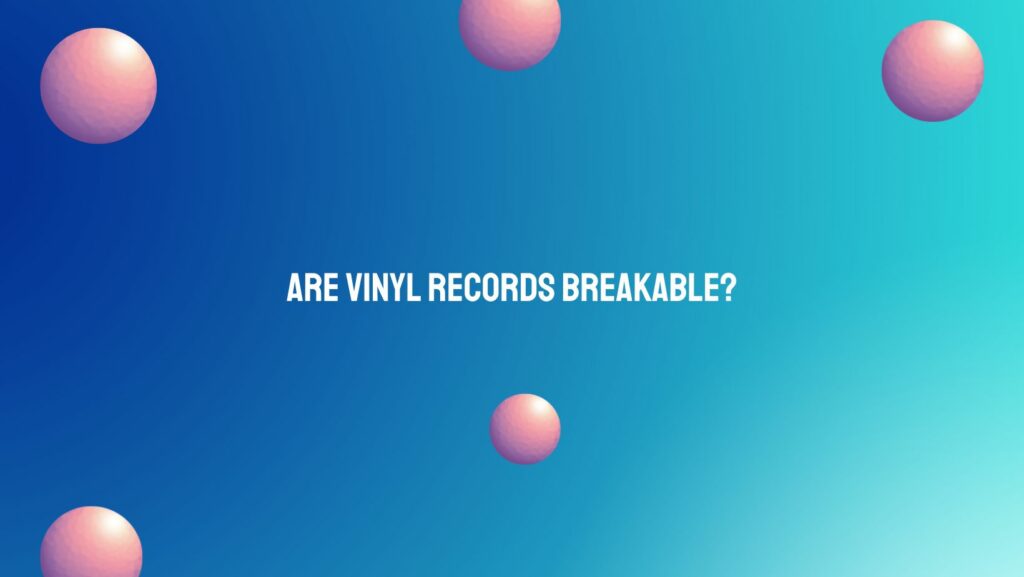Vinyl records, with their analog charm and unmistakable grooves, have endured as cherished artifacts in the world of music enthusiasts. However, a lingering question often surrounds their durability—how breakable are vinyl records? In this article, we embark on a journey to explore the resilience of vinyl records, debunking common myths and shedding light on the factors that contribute to their fragility.
The Composition of Vinyl Records:
Vinyl records are composed of polyvinyl chloride (PVC), a type of plastic that undergoes a pressing process to create the grooved discs we know and love. While PVC is inherently sturdy, the delicate nature of the grooves demands careful handling to preserve the record’s structural integrity.
Common Misconceptions about Vinyl Breakability:
- Myth: Vinyl Records Are Easily Breakable.
- Reality: Vinyl records are not as fragile as commonly believed. They are, however, prone to scratching, warping, and damage if mishandled or subjected to extreme conditions.
- Myth: Vinyl Records Shatter Like Glass.
- Reality: Unlike glass, vinyl records do not shatter into pieces when dropped. Instead, they may suffer from cracks, chips, or warps, depending on the force and angle of impact.
Factors Contributing to Vinyl Records’ Fragility:
- Warping:
- Exposure to heat, direct sunlight, or uneven pressure during storage can cause records to warp. Warping, a common issue, affects the playback quality and structural integrity of the vinyl.
- Scratching:
- Mishandling, improper storage, or using a damaged stylus can result in scratches on the record surface. While minor scratches may not significantly impact playback, deep scratches can distort sound and affect the overall quality.
- Dropping:
- Though vinyl records are not as prone to shattering as glass, dropping them can lead to cracks or chips along the edges. Cracked records may still be playable but can produce unwanted noise.
Preserving Vinyl Records:
- Proper Storage:
- Store records upright in a cool, dry place away from direct sunlight and heat sources. Use protective sleeves and avoid stacking them excessively to prevent warping.
- Gentle Handling:
- Handle records with clean hands, gripping them by the edges. Avoid touching the grooved surface, as oils and contaminants from fingertips can contribute to wear and damage.
- Regular Cleaning:
- Regularly clean records using a soft brush or a dedicated record cleaning kit. Removing dust and debris minimizes the risk of scratches during playback.
- Stylus Maintenance:
- Ensure your turntable’s stylus is in good condition and properly aligned. A damaged or misaligned stylus can exert excessive force on the grooves, leading to wear and potential damage.
Conclusion:
While vinyl records are not inherently breakable like glass, their fragility lies in susceptibility to warping, scratching, and other forms of damage. With proper care and handling, enthusiasts can enjoy the timeless beauty of vinyl playback, preserving the delicate balance between the analog grooves and the captivating music they carry. As guardians of this analog art form, music lovers continue to embrace the fragility of vinyl records while savoring the enduring magic they bring to the world of sound.


